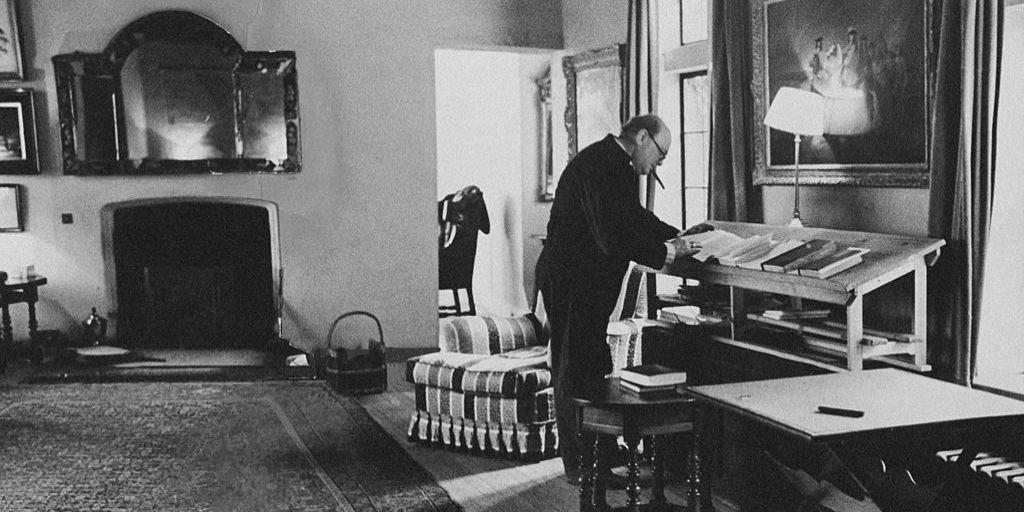Lost Winston Churchill Essay Argues That Aliens Exist

Winston Churchill will always be known chiefly for his political career and library of (somewhat apocryphal) witticisms, but a recently rediscovered essay adds a new facet to Churchill's legacy. He believed in aliens.
The essay-initially titled 'Are We Alone in Space?' and revised by Churchill to 'Are We Alone in the Universe?' years later-was recently turned up by Timothy Riley shortly after he started his post as the director of the U.S. National Churchill Museum in Fulton, Missouri. Thought to have been gifted to the Museum in the 1980s by the wife of Churchill's publisher Emery Reves, the essay has gone unpublished and largely unknown until now.
In a recent article for Nature, writer Mario Livio explores and contextualizes Churchill's argument, which may sound quite reasonable to modern ears. Starting first with the idea that liquid water is necessary for life, Churchill first narrows down the candidates in our solar system to Mars and Venus due to temperature and atmospheric conditions. From there, the case broadens out to a pretty familiar argument: Space is so big, there's gotta be something out there.
With hundreds of thousands of nebulae, each containing thousands of millions of suns, the odds are enormous that there must be immense numbers which possess planets whose circumstances would not render life impossible.... I, for one, am not so immensely impressed by the success we are making of our civilization here that I am prepared to think we are the only spot in this immense universe which contains living, thinking creatures, or that we are the highest type of mental and physical development which has ever appeared in the vast compass of space and time.
First written in 1939 and lightly revised in 1950, the article's conclusion may seem a bit rote now. However, this was long before the development of Drake's Equation in 1961, which clarified and popularized the probabilistic case for alien life in broader culture. While Churchill was certainly not the first to begin thinking along these lines, he seems ahead of the curve.
There were, of course, all kinds of discoveries that Churchill could never have hoped to predict, most notably the potential some moons hold for life, like Saturn's Encladeus and Jupiter's Europa. Hopefully we'll visit one soon and discover if his hunch that aliens do exist can be confirmed in our own neighborhood.
Source: Nature
You Might Also Like

